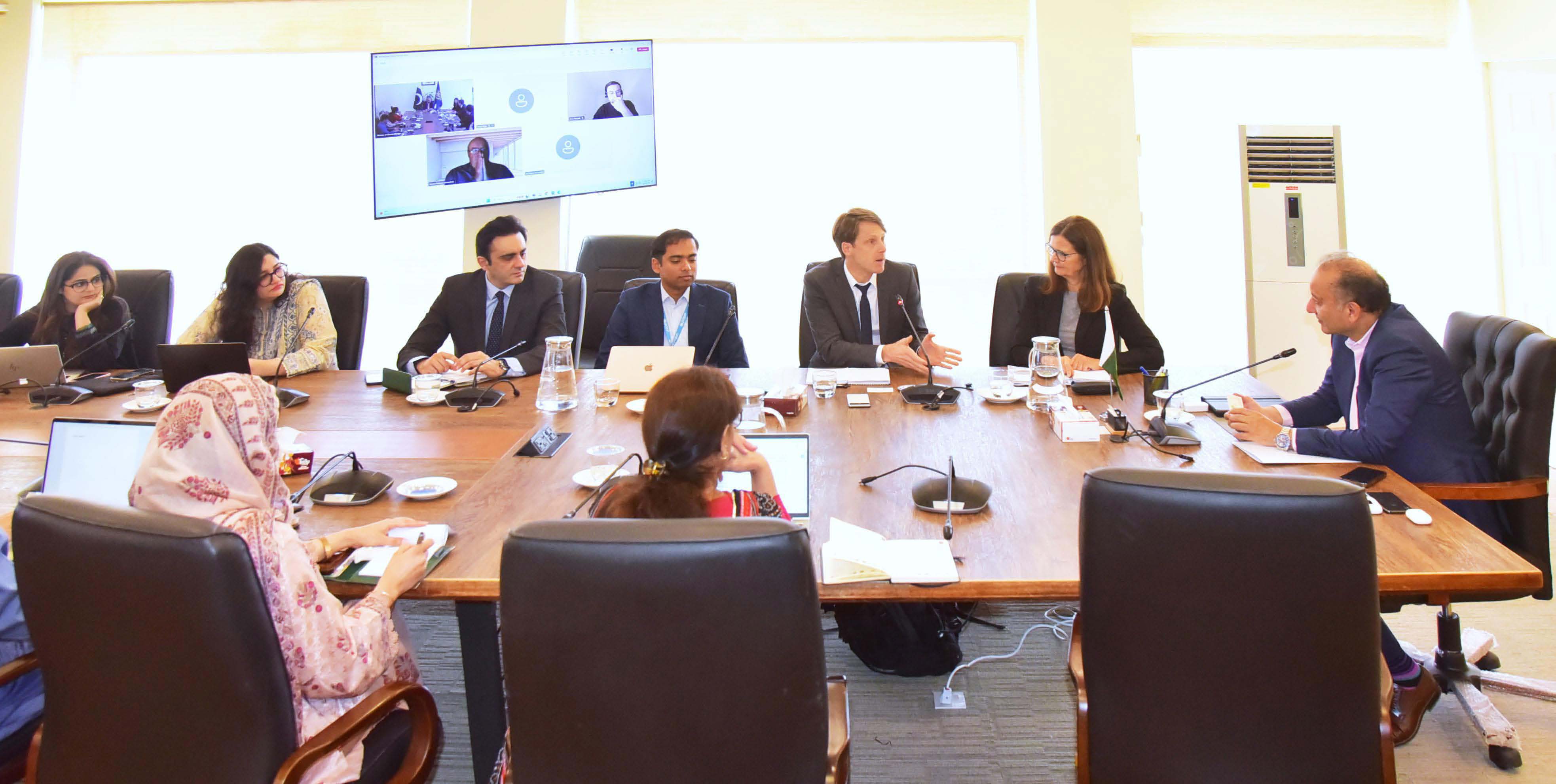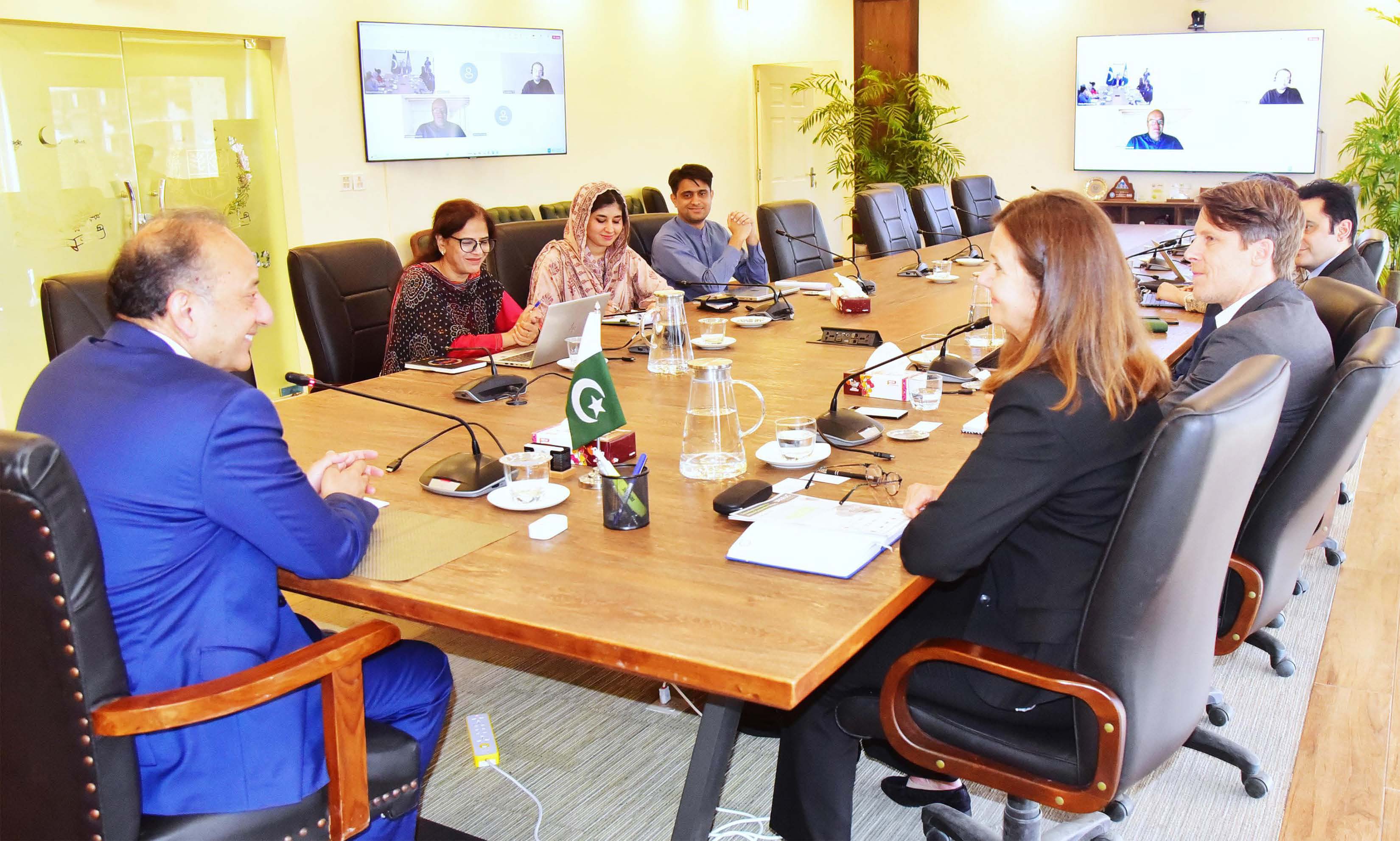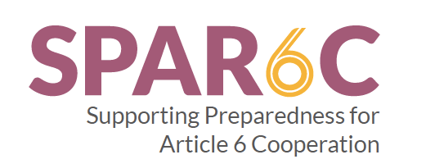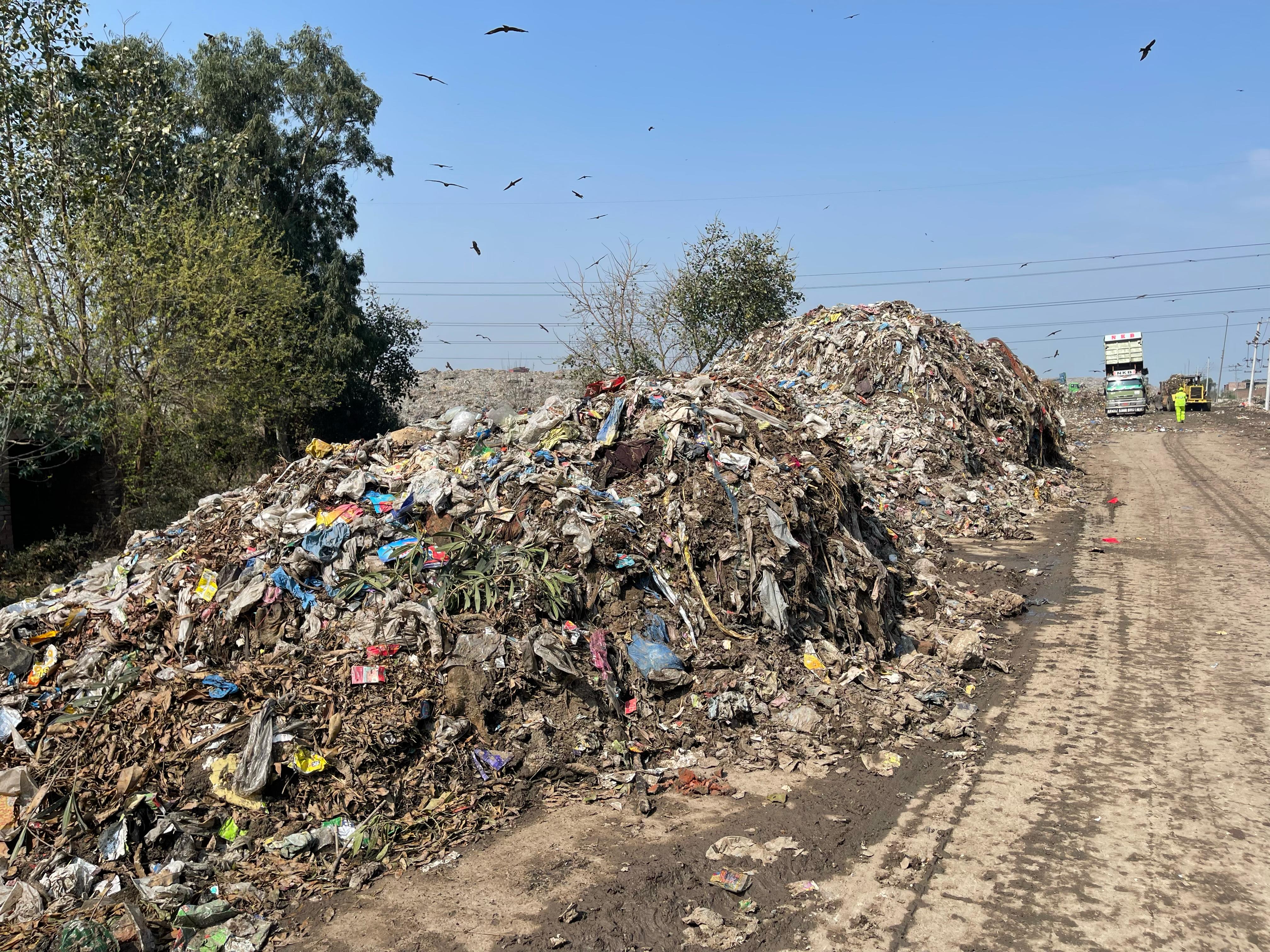Pakistan is entering a pivotal phase in its climate finance journey. With support from the Supporting Preparedness for Article 6 Cooperation (SPAR6C) programme and international partners, the country is laying the groundwork for investor-ready frameworks that prioritize transparency, competitiveness, and sustainable reinvestment of carbon revenues.
This week, government and international representatives met in a bilateral learning session held at the Ministry of Climate Change and Environmental Coordination (MoCC&EC). The participants discussed ways to strengthen Pakistan’s governance framework for Article 6 carbon markets under the SPAR6C programme – a technical assistance initiative funded by the German Federal Government (formerly the Federal Ministry for Economic Affairs and Climate Action, BMWK) through the International Climate Initiative.
Globally led by the Global Green Growth Institute (GGGI), SPAR6C is implemented in Pakistan by the UNEP Copenhagen Climate Centre with support from GFA Consulting Group. The programme assists partner governments in developing policies, regulations, and pilot activities for high-integrity carbon markets under Article 6 of the Paris Agreement.
High-integrity carbon markets
The session, chaired by Senator Dr. Musadik Malik, Federal Minister for Climate Change and Environmental Coordination, centered on Pakistan’s transition to the operationalization phase of its carbon market, particularly around equitable benefit-sharing from carbon revenues and transparent fee structures for high-integrity carbon credits as the government begins authorizing mitigation activities.
“Carbon markets can make a significant contribution to achieving Pakistan’s climate goals and the 1.5°C target of the Paris Agreement,” said Senator Dr. Musadik Malik. “To unlock this potential, our fee structures and market conditions must be transparent, competitive, and attractive for investors, while ensuring that revenues are reinvested into sustainable development at home. Pakistan is committed to developing a comprehensive strategy to guide high-integrity carbon market growth.”
Ms. Aisha Humera Chaudhary, Secretary of MoCC&EC, reaffirmed the Government’s commitment to institutional strengthening and regulatory alignment:
“The carbon market ecosystem is entering a critical phase in which Pakistan will begin issuing authorizations to projects under Article 6. Establishing robust governance systems is vital to protect environmental integrity while ensuring that the economic benefits of carbon trading reach both national institutions and local communities,” said Ms. Chaudhary.
Unlocking new opportunities for climate finance
During the meeting, Mr. Urwah Khan, representing UNEP Copenhagen Climate Centre, reiterated SPAR6C’s commitment to structured capacity-building efforts and continued technical support to assist Pakistan in piloting Article 6 transactions. These pilot activities will enable greater private-sector participation and unlock new opportunities for climate-aligned investment in Pakistan.
Mr. Manuel Möller, Global Project Manager for SPAR6C at GGGI, emphasized that this stage of collaboration represents a crucial milestone in Pakistan’s transition from readiness to implementation:
“SPAR6C supports the development of carbon markets in Pakistan in a holistic manner – from policy design to implementation. This includes assistance in the definition of appropriate benefit-sharing arrangements as well as clear and transparent fee structures. Both are crucial to ensure investor confidence and national benefit,” said Manuel Möller.
Enhancing national capacity
The SPAR6C programme has been instrumental in helping Pakistan establish the foundational elements of its carbon market policy framework. Following the launch of Pakistan’s National Carbon Market Policy Guidelines at COP29, SPAR6C has extended its technical assistance to support the drafting of the Carbon Market Rules and Regulations, including provisions for fee structures, authorization processes, and credit-transfer mechanisms.
“Pakistan’s entry into the operationalization phase reflects its growing readiness for Article 6 implementation. These discussions on pricing and governance demonstrate strong political ownership and international partnership,” added Ms. Helene Paust, Deputy Head of Cooperation, Embassy of Germany.
Through these initiatives, SPAR6C continues to strengthen Pakistan’s institutional capacity, enhance transparency in carbon transactions, and support the development of a high-integrity, investment-ready carbon market ecosystem that aligns with Article 6 of the Paris Agreement.





